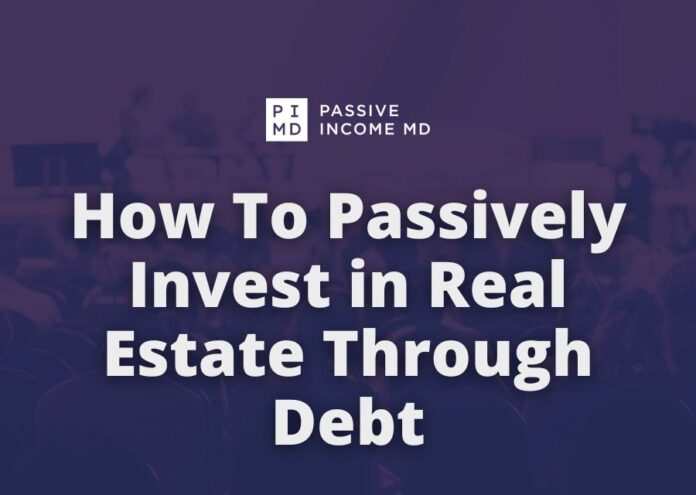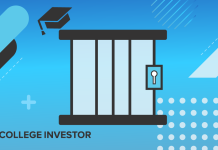Create your very own Auto Publish News/Blog Site and Earn Passive Income in Just 4 Easy Steps
Disclaimer: This article was submitted by our sponsor Aloha Capital
In this article, we explore the basics of building passive income through bonds (or debt) on real estate.
- What is passive income?
- What is passive real estate investing?
- What is a real estate loan investment?
- Opportunities for passive investment in real estate debt
Let's get started.
What is passive income?
Passive income, by definition, is money earned with little to no effort or direct involvement after the initial setup. Essentially, passive income allows you to generate income without actively trading your time for money. “The way I look at it, it's not passive if I'm managing people, making ongoing decisions, or thinking about how I'm going to generate cash flow from the investment on a monthly basis” – Kevin Hill, CEO of Aloha Capital.
What is passive real estate investing?
Active real estate investing requires direct involvement in tasks such as finding, buying, renovating, renting and managing rental properties. When you invest in real estate this way, you're actually just generating passive income for someone else who benefits from your efforts while you guarantee their return on investment. Wait, what?
That's right, behind every financed residential property there is a private lender (or bank) who injects capital into the transaction. Then, either directly or through an investment company or financial institution, there are ordinary people who really do passively benefit from the hard work of the active investors and are protected by the equity in the property and the personal guarantee of the borrower(s) if the collateral is not sufficient.
When you become a passive participant, you generally give up the active role of investing and finding a team you trust and that has a proven track record.
“If you want to become a passive real estate investor, it's more about who you work with than how you generate passive income.
Professionals have spent years perfecting their field, and likewise, they have the opportunity to connect with and trust real estate experts who can handle the complexities and hassle of real estate investing for them. It's just like when I rely on the expertise of doctors when I'm sick or injured – they are the experts and I trust them to provide me with the best care.” Nate Agnini – Business Development at Aloha Capital.
What is real estate debt investment?
When investing in real estate through debt rather than equity, loans are made to active real estate investors such as developers, renovators or
Investment property owners. Rather than owning a property outright, as with an investment, real estate lenders lend money backed by the property and usually a personal guarantee of repayment. In return, they receive interest payments over the life of the loan and eventually receive the principal back when the loan is repaid.
Banks and other financial institutions serve and ignore segments of the residential real estate market such as rehabilitations because they do not allow their loans to be secured by a property with deferred maintenance. In 2023, approximately 300,000 single-family homes and condos were sold in the United States, accounting for approximately 8.1% of all home sales. That's down from previous years when over 10% of home sales were recently renovated by an investor. It's a huge market supported by private lending participants. The typical interest rate on short-term residential rehabilitation loans ranges from 8% to 15% or more, depending on the terms of the transaction.
Investing in real estate loans requires consistent effort in the form of finding borrowers, taking on the borrower guarantee, the property and the exit plan, creating legal contracts and collecting interest payments. This is not exactly passive as defined above, so let's look at some ways to invest in real estate loans passively.
Opportunities for passive investment in real estate debt
Just like with passive equity investing in real estate, you are looking for a trusted partner to take care of the day-to-day activities. You should ask questions like:
- How long have you been operating as a lender?
- How many transactions have they underwritten and how many have they financed?
- What are the criteria for granting credit?
- What was the percentage of success or failure?
- Would they risk personal capital with you?
You also need to consider how you want to invest in real estate loans, as there are several options available:
- Real Estate Debt Fund or mREIT. Through an investment company, you invest in a portfolio of loans that can provide diversification
across many borrowers, markets and/or project types. You need to understand the portfolio composition, fees and expenses
charged along with the provision of liquidity. You may need to be an accredited investor to access this type of investment vehicle. Invest
You can invest capital in a fund or mREIT over a longer period of time without having to make investment decisions. - Whole loans. By investing or purchasing a total loan originated, managed and serviced by a trusted third-party lender, you have the choice
the specific borrower, property and project profile you are comfortable with. Finding the perfect solution at the perfect time can be difficult
Loan size that matches the capital you want to invest. Your investment is usually for the term of the loan, so you should
Find out about the loan's maturity dates and renewal terms. - Partial loan (participation). Similar to total loans, you can select the specific borrower, property and project profile you
However, you invest in a portion of the loan or a percentage of the proceeds from the loan. This removes the hurdle of the right loan size for your investment allocation. You may even be able to create a customized, diversified portfolio of fractional loan investments.
The team at Aloha Capital, a supporter of the PIMD community, is happy to share more information about real estate debt investing and provides access to all three paths of passive debt investing. For more information, visit the Swell investment platform..
Create your very own Auto Publish News/Blog Site and Earn Passive Income in Just 4 Easy Steps







